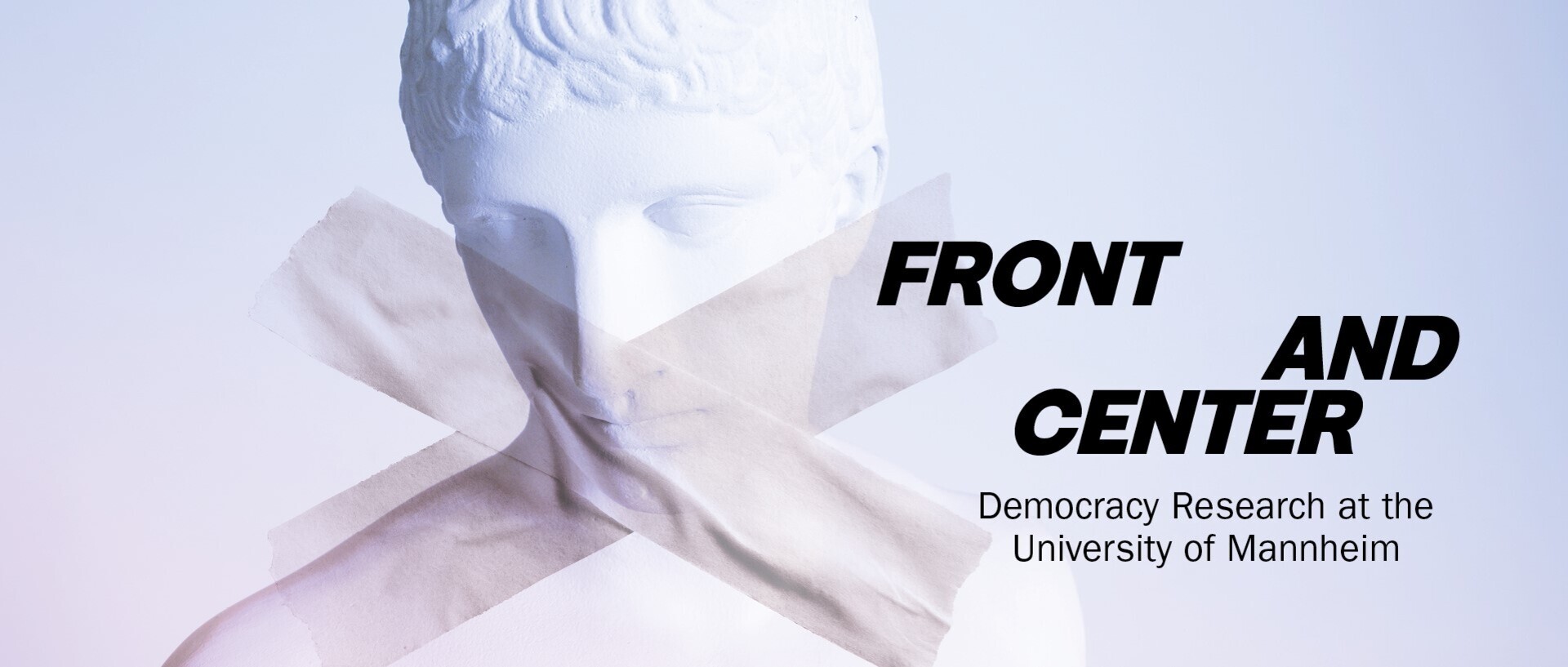Three Questions For … Legal Scholar Prof. Dr. Svenja Behrendt
In February 2024, Svenja Behrendt joined the University of Mannheim as Junior Professor of Public Law. Her research centers on democracy, autonomy, and self-determination, as well as the legal challenges posed by digitalization, datafication, artificial intelligence, and climate change.

FORUM: You recently gave a talk titled “Democracy and Fundamental Rights: An Inseparable Duo.” Is that really the case?
Prof. Dr. Svenja Behrendt: Yes, that was part of the “Democracy Needs Dialogue” lecture series. The talk draws on a larger, ongoing project on democratic theory that explores the relationship between democracy and fundamental rights. It’s widely accepted that the two are connected—but there’s considerable disagreement on the exact nature of that connection and its implications. The sociologist Jürgen Habermas, for instance, argued that there is a deep connection, with democracy and fundamental rights being “co-original.” My own approach is based on different premises, so the resulting concept differs significantly from his. Still, the basic idea is quite similar: I argue that both democracy and human and fundamental rights are rooted in the principle of equal standing. In that sense, the project builds on my broader work on fundamental and human rights.
FORUM: From your perspective as a public law scholar, what would you say are the weaknesses of democratic systems?
Behrendt: One of democracy’s biggest weaknesses is that it’s inherently unstable. But that’s also what keeps it alive. Democracy is a constant process of negotiation and decision-making. It’s shaped by a complex web of interactions between all kinds of actors—some within the state, some outside of it. A lot depends on how those in office understand their roles and how they act on that understanding.
You can see this pretty clearly when you look at the legal system. It can’t guarantee stability, because—just like politics—the law is a dynamic tool. It can be used to protect democracy and fundamental rights, but it can also be used to chip away at them. At the same time, the law doesn’t work if public officials simply choose to ignore it. A few isolated violations aren’t necessarily a problem for democratic stability. But if those violations become systematic—if, say, political actors start openly defying court rulings—then that’s a real cause for concern. And sometimes it’s not even the violations but the rulings themselves that are problematic—especially when they fail to balance competing rights and end up reinforcing inequalities, thereby violating the principle of equal standing. That’s when it becomes essential to have checks and balances that actually work.
There’s another kind of vulnerability, too—one that has to do with the fact that democracy depends on the decisions of individual citizens, the sovereign. And people, of course, can be manipulated. One of the biggest challenges we’re dealing with right now in this regard is the role of social media, which makes it incredibly easy to exploit cognitive biases. In short, the way our minds work can be used against us. Digital technologies and AI provide tools for manipulation that we’ve never had before. Social media, in particular, creates an environment where those biases are amplified. Take our tendency to go along with the crowd: “If it’s getting a lot of likes, it must be good—or right.”
FORUM: And where do you see democracy’s strengths?
Behrendt: In the medium and long term, democracy is the form of government that offers the best protection against human rights violations—especially those that are systemic or that involve serious violations of the principle of equal standing. It’s pretty obvious that authoritarian regimes are more prone to such abuses. Just look at what’s happening in the U.S. under Donald Trump: his deportation policies, his use of misogyny as a political strategy, his rejection and active targeting of the LGBTQ community, and his broader opposition to diversity and pluralism. The U.S. may not yet be a fully stabilized autocracy—but really, the only question now is whether that stabilization will happen. The problem doesn’t begin when a society is widely recognized as an autocracy. It starts much earlier—when democracy begins to erode as a complex societal condition, one grounded in lived checks and balances and in the principle of equal standing when it comes to fundamental rights.
Interview: Jule Leger / August 2025
